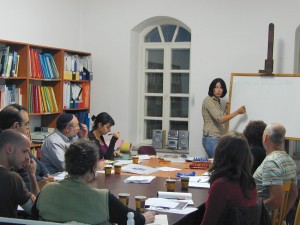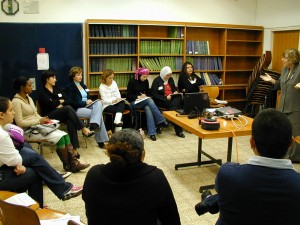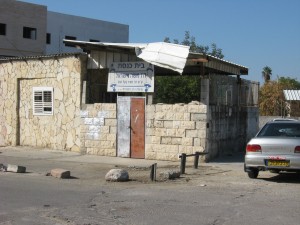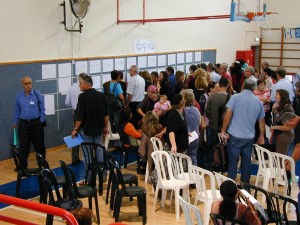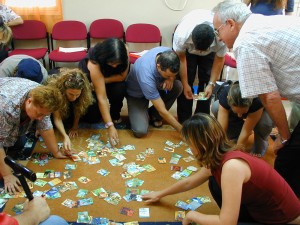The Arabic-Hebrew Studies Center in Jerusalem – Beginning of the 2008-09 class
On the week of October 26, 2008, we began another year of the language courses at the Arabic-Hebrew Studies Center.
These intensive courses are intended for professionals and leaders who need language skills in order to be more culturally competent in their work and activities. Participants include Jewish-Arab facilitators and project managers, Jewish lawyers who help Arab residents to gain their rights, Arab activists who work with Jewish NGO partners, people from the business sector who seek cross-cultural collaborations, and more. This project is funded by our strategic partner, the Jerusalem Foundation, with whom we share the belief that whoever works in an Arab-Jewish environment must have adequate knowledge of the two languages. Regrettably, up until now this approach is not well acknowledged in Israel. However, in Jerusalem, thanks to this project, we can see a significant shift.
Indeed, after only a few years, the results are noticeable. Jerusalem is probably the only city in Israel where most Jewish-Arab staff members have a good command of both languages. This transition has also affected the JICC itself – all our staff, including administrative staff, has elemental knowledge in both languages. Not many Jewish-Arab organizations can be proud of such an achievement – and remember that the JICC is not a Jewish-Arab organization, its West Jerusalem-East Jerusalem work is just a part of its undertakings
This year, in response to high demand, we opened two beginners’ classes instead of one and still had to screen the candidates. The intermediate course, which two years ago hardly had enough participants, filled up very fast, and the advanced course is also almost full. Just a year ago this group was half empty – there were simply not enough candidates for the higher level. The intermediate and the advanced groups are populated mainly by graduates of previous years.
This year we also added another aspect to the courses – although we focus on the spoken dialect, the participants will learn to read Arabic. The formal Arabic (Fus’kha) is very different from the spoken Palestinian dialect, which is taught in all our courses, so the students will not become readers of formal Arabic. However, they will be able to read names, signs, newspaper headings and similar – literacy at its best. This will be the next significant shift, as most Arabic-speaking Jewish professionals are unable to recognize their own name written in Arabic.

